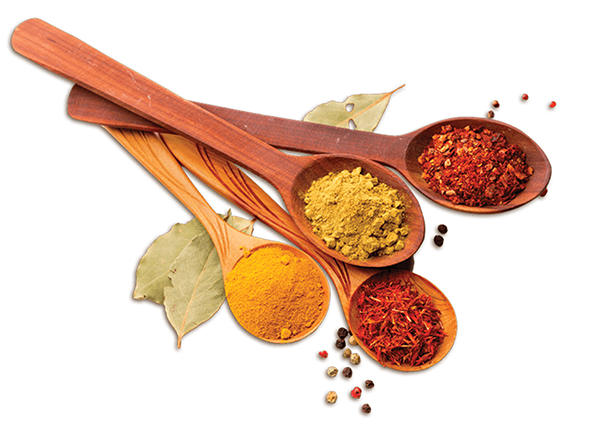
Indian spices have a rich legacy. They have been in great demand since the 12th century. Even before the Christian era, the Greek merchants flooded the markets of south India to buy spices, which were considered a luxury item. The Indian spices were the main lure for crusaders during their expeditions to the country. After Vasco da Gama successfully discovered the route to India via the Cape of Good Hope in 1498, a Portuguese expedition brought the first Indian spices to Europe from India through the Cape of Good Hope in 1501.
The allure of Indian spices still remains intact. India produces 75 varieties of spices of the 109 listed by International Organization for Standardization (ISO), and is also the world’s largest producer of spices. The country accounts for half of the global trading in spices. Top spices produced in the country include pepper, cardamom, chilli, ginger, turmeric, coriander, cumin, celery, fennel, fenugreek, ajwain, dill seed, garlic, tamarind, clove, and nutmeg among others.
The total spices export from India stood at 226,225 tonnes valued at $621.78 in April-June 2016, registering a year-on-year growth of 3%. The countries that were the major importers of Indian spices in FY 2015-16 were the United States, China, Vietnam, the UAE, Indonesia, Malaysia, the United Kingdom, Sri Lanka, Saudi Arabia, and Germany. India commands a formidable position in the world spice trade with spice exports expected to touch $3 billion by 2016-17.
J K Masale, the market leader with 40% of market share in eastern India in branded spice space, completed 60 years. The brand targets around 10 million customers across the country and is also available online.
The brand gets its name after the founder of the company, the late Dhanna Lal Jain was christened as the “Jeera King of the East” after which the company was named JK. Vijay Jain, Director- Sales & Marketing, JK Spices & Food products, spoke to BE’s Varsha Singh about the spice market in India and how has his brand evolved over the years.
Q. How is the Indian spice industry doing?
A. India has the largest domestic market of spices in the world. Spices are used for different religious ceremonies and in medicines apart from cooking in India. Spices are the most rapidly growing category in food and demand for spices with high quality, safely packaged and containing natural colours is expanding robustly.
Q. What are the technologies that you use these days for the manufacturing and how is the packaging done?
A. Our company uses highly advanced technologies. All our packaging units maintain the FSSAI standard. For considerable production, the high capacity machines are engaged. The machines are user-friendly and do not affect the production efficacy. One of the equipment is used to produce superior quality spices and is used as colour and size detector. Other than the chosen product’s colour and size, all other colours and sizes will be detected and rejected.
Q. Which are your popular products in India and in the overseas market?
A. Our extensive research and development has led us to introduce new product ranges and refine the existing ones. Our mission is to spread our brand globally.
Some of our products play a very important role in both the Indian market and abroad. JK Cumin seed, JK Turmeric and JK Shahi Garam Masala are our popular products. JK Shahi Garam Masala is prepared from pure and hand-picked spices.
Q. Which are the international markets that you export to?
A. Currently, we are exporting to Asian countries like Thailand, Hong Kong, Japan, Nepal and Singapore. We will soon be starting our operations in USA and Canada.
Q. What is your market share in India and what is your expansion target in the coming few years?
A. The Masale and Spices segment in India is still dominated by the unorganised players. The old culture of buying loose spices and grinding them in old fashioned equipment called “Chakki” is still dominant. The market share of organised players is only about 15-20% where JK Masale holds approximately 3% of the organised market share. Since our company base is in West Bengal, we hold almost 50%-55% of the market share in eastern zone. The target for this fiscal year is to double the turnover.
Add new comment